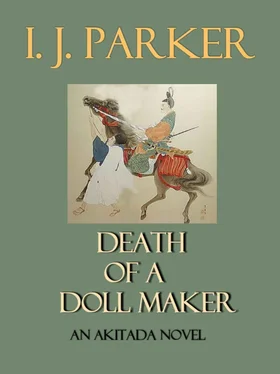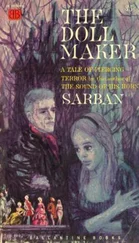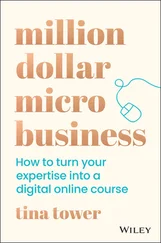I. Parker - Death of a Doll Maker
Здесь есть возможность читать онлайн «I. Parker - Death of a Doll Maker» весь текст электронной книги совершенно бесплатно (целиком полную версию без сокращений). В некоторых случаях можно слушать аудио, скачать через торрент в формате fb2 и присутствует краткое содержание. Жанр: Исторический детектив, на английском языке. Описание произведения, (предисловие) а так же отзывы посетителей доступны на портале библиотеки ЛибКат.
- Название:Death of a Doll Maker
- Автор:
- Жанр:
- Год:неизвестен
- ISBN:нет данных
- Рейтинг книги:4 / 5. Голосов: 1
-
Избранное:Добавить в избранное
- Отзывы:
-
Ваша оценка:
- 80
- 1
- 2
- 3
- 4
- 5
Death of a Doll Maker: краткое содержание, описание и аннотация
Предлагаем к чтению аннотацию, описание, краткое содержание или предисловие (зависит от того, что написал сам автор книги «Death of a Doll Maker»). Если вы не нашли необходимую информацию о книге — напишите в комментариях, мы постараемся отыскать её.
Death of a Doll Maker — читать онлайн бесплатно полную книгу (весь текст) целиком
Ниже представлен текст книги, разбитый по страницам. Система сохранения места последней прочитанной страницы, позволяет с удобством читать онлайн бесплатно книгу «Death of a Doll Maker», без необходимости каждый раз заново искать на чём Вы остановились. Поставьте закладку, и сможете в любой момент перейти на страницу, на которой закончили чтение.
Интервал:
Закладка:
“The harbor police deals with smugglers, but Chinese ships come right into the harbor. There are smugglers, but mostly in Satsuma and Osumi provinces.”
The shrine priest’s house was on the outskirts of Hakata in a neat and substantial compound. Presumably, Mitsui’s daughter had no need for her parents’ money or property. They were admitted by a woman servant.
The priest, a gray-haired man called Kuroda, received them in his study. “Ah, Maeda,” he said with a sigh. “I’ve been expecting you. How are you? The maid says you wish to see my wife also?”
Tora recognized the priest, who had been part of the reception committee, and the priest recognized Tora. They bowed to each other. “I’m honored,” said Kuroda, looking from Tora to Maeda and back but sounding not in the least honored. “Has what happened to Mitsui’s wife attracted the attention of the governor?”
“Not quite,” Maeda said gravely. “Perhaps your lady had best be called, sir.”
The priest shot him a suspicious glance. “If you insist, but this is very unusual under the circumstances.” He sent for his wife.
The woman who came was quite beautiful, many years younger than her husband, and dressed in the full Japanese robes of stiff silk, but over them she wore an embroidered Chinese jacket which would have tempted an imperial lady. She did not look particularly distraught.
“Sergeant Maeda and an, er, official from the governor’s office want to speak to you,” her husband told her.
She eyed them placidly.
Maeda looked uncomfortable and cleared his throat. “It’s about your mother, Mrs. Kuroda. I’m afraid it’s complicated.” He paused.
She stared at him with a frown.
“Perhaps you should sit down. No? I’m sorry to tell you that she died from a very violent attack.”
The news had little effect on the beautiful Mrs. Kuroda. She nodded and said, “The woman who died is not my mother. My father married again. It was some hoodlum, I suppose. I take it my father is seeing to the arrangements?”
Tora cleared his throat. “I’m afraid your father has been arrested for her murder,” he told her bluntly. “We’re here to ask you some questions about your parents.”
The priest gasped, turned pale, and sat down abruptly. “Arrested for murder? How terrible! What happened? A quarrel? An accident?” He gasped again and put a hand over his eyes. “My dear, some water. I feel faint.”
His wife turned on her heel and left the room.
Tora and Maeda exchanged looks.
“Did the Mitsuis have frequent quarrels?” Maeda asked the priest.
“How should I know? I rarely saw them. This is dreadful. A shrine priest cannot afford scandal.”
The wife returned with a cup and handed it to her husband. “What happened to my father’s wife?” she asked Maeda.
“She was stabbed many times while she slept. Your father claims he’s innocent. He says he wasn’t home, and someone must’ve broken in.”
“Then why is he in jail?” she demanded.
“There’s no sign anyone broke in, and he was covered with her blood.”
She shuddered. “Horrible. It doesn’t feel real. Such things happen to other people.”
“Did you visit your father’s house regularly?” Tora asked.
“What do you mean by that?”
“You’re his daughter. Surely you visited. Maybe they both came here to visit.”
“No.”
“No?”
The priest put his cup down and struggled to his feet with his wife’s help. He said, “The Mitsuis lead very busy lives, and so do we. Different lives, I mean. If he says someone else murdered his wife, it must be so. You must find that murderer.”
Tora frowned. “You mean to tell us neither of you had contact with them at all? Didn’t you know they were badly off?”
The priest blustered. “If they were in want, they should have come to us. They didn’t.”
Maeda asked, “Was there perhaps a disagreement between your families?”
“Of course not,” snapped the priest.
“But your wife doesn’t seem particularly troubled,” Tora pointed out. “What about her relationship with her father? Or her father’s wife?”
She glared at him. “You have no right to judge me. I left home when I married, that’s all. I went to see them a couple of times at the New Year, but she was always busy with those dolls. She had her life, and I have mine. And my father favored by brother.”
Tora was troubled by this lack of feeling. “When did you see her last? Did she tell you she had to clean other people’s houses?”
Mitsui’s daughter exchanged a glance with her husband. “Yes, I knew. She went on and on about all the fine things in Hayashi’s house. She and her friend enjoyed working there.” She paused and bit her lip. As if it explained everything, she added, “They were Chinese.”
Before Tora could voice an opinion on a daughter’s duty to her parent, Maeda asked, “This friend of hers? She worked there also? What’s her name?”
This baffled her. “I don’t remember the names of maids.”
Maeda ended the visit, practically pulling Tora from the shrine priest’s house. Outside, he said, “Tora, you must curb your tongue. It’s best to make people feel at ease when you want information.”
“Sorry. You’re right, but I couldn’t help it. That woman is a she-devil, and her husband’s not much better. I’ll watch myself in the future. Let’s go find the friend next. Something isn’t right about this.”
The Hayashi house was a fitting residence for an important guild official. It had its own compound and small garden behind. Maeda got his information from a servant.
Yes, a Chinese woman by the name of Mei worked there, but she hadn’t shown up for work. They also had another Chinese woman by the name of Suyin, family name Zhou, but she couldn’t be spared during working hours.
Maeda did not press the issue. They headed back and entered the Chinese quarter. This was near the harbor but had its own moat and dirt walls. They passed through a substantial gate and found themselves in a warren of streets and houses built so closely together Tora could not tell where one began and another ended. He thought the many walls, some dirt and some wood or bamboo, enclosed other dwellings within them. Each unit seemed to enclose a small village of houses.
When he commented on this, Maeda said, “They have large families, and all stay together.”
The Chinese men wore tight, slit robes with narrow sleeves. The women put their hair in braids or buns on the back of their heads and some piled it high on top. Most struck Tora as plain, with flat, coarse faces and round bodies, but there were one or two young girls who were charming and graceful. The cut of the women’s clothes was straight and narrow like the men’s, but they wore skirts under the slit tunics. Their language sounded harsh and animal-like to his ears. He walked and stared, and once he laughed out loud, and Maeda gave him a look.
Tora sniffed the air. “It smells delicious. And it’s past time for the midday rice. How about sampling the local fare? I’ll pay.”
Maeda chuckled. “Either you’ve won a wager or your pay’s better than mine, as the case may be. Though come to think of it, your pay must be better. You’re the governor’s executive officer.”
Tora snorted. “As for that, I’ve yet to see a copper of it.”
They ate in a large Chinese restaurant called Golden Dragon near the harbor. To Tora’s surprise, the guests occupied wooden chairs like those of Buddhist abbots. Tora sat down, shifted his bottom around a bit, and grinned. “I could get used to this. It feels a little stiff, but you don’t have to worry about getting up and down and it keeps your robe out of the dirt.”
Читать дальшеИнтервал:
Закладка:
Похожие книги на «Death of a Doll Maker»
Представляем Вашему вниманию похожие книги на «Death of a Doll Maker» списком для выбора. Мы отобрали схожую по названию и смыслу литературу в надежде предоставить читателям больше вариантов отыскать новые, интересные, ещё непрочитанные произведения.
Обсуждение, отзывы о книге «Death of a Doll Maker» и просто собственные мнения читателей. Оставьте ваши комментарии, напишите, что Вы думаете о произведении, его смысле или главных героях. Укажите что конкретно понравилось, а что нет, и почему Вы так считаете.












